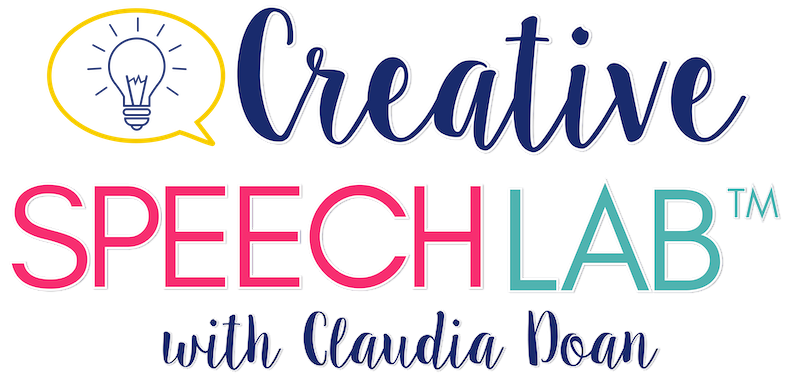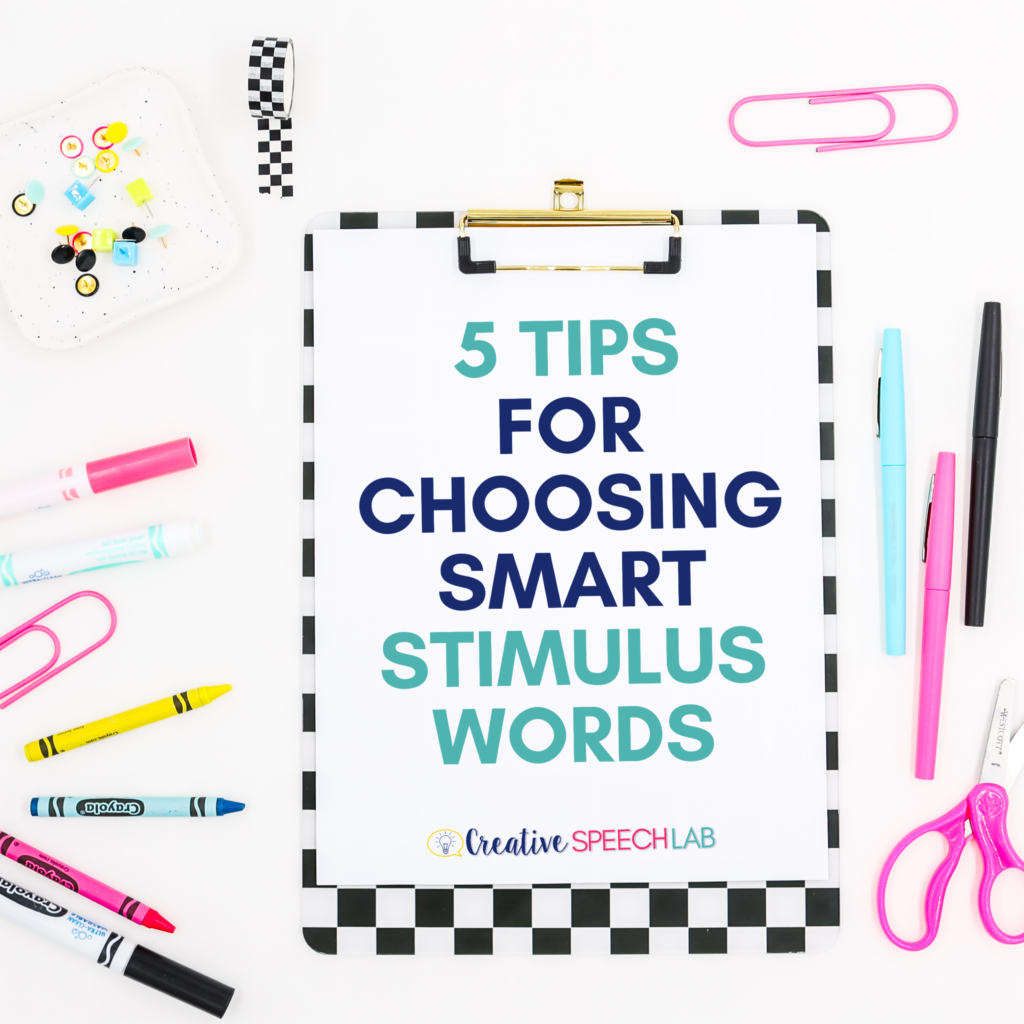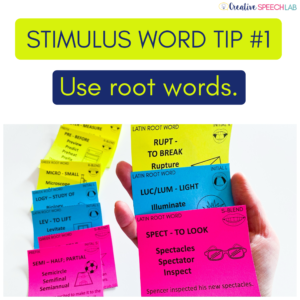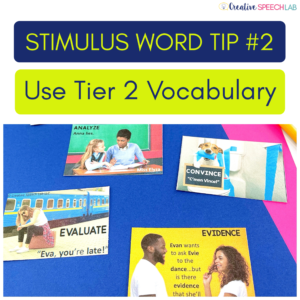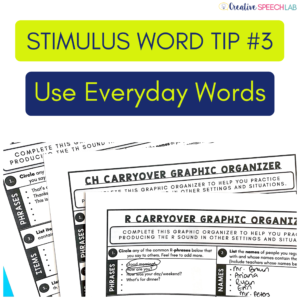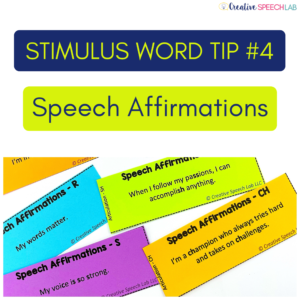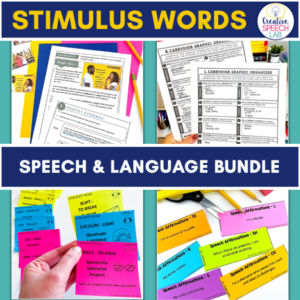Stimulus words matter.
Your simple choice of words has the power bring about:
- generalization
- cross-curricular learning
- measurable progress
- motivation
In case you’re wondering where to begin, I’ve got you!
Here are my top 5 tips for choosing smart stimulus words as well as a list to get you started!
1. Use Root Words
Why root words? Well, I often think of them as context clues within words!
For instance, take the root word “spect” in the photo above. Once students learn that it means “to look”, they’ll be more likely to guess word meanings to unfamiliar words (e.g., inspect) containing this morpheme! In addition, it’s a powerful way to build semantic webs and understand word relationships – a win-win!
Here are some root words if you need them!
2. Use Tier 2 Vocabulary
Tier 2 vocabulary is recommended by researchers because it occurs across the curriculum. In this blog post, I highlight 5 tier 2 words you can begin with, tips for teaching them, and a FREEBIE!
Here are is my most comprehensive Tier 2 resource if you want it all planned out!
3. Use Everyday Words
This tip is my favorite. The BEST way to facilitate carryover is to find target words that occur in the daily lives of your students.
When your students leave the speech room and say these words in different settings with various people, the likelihood of your work together generalizing is far greater!
I devised a system for compiling these words WITH my students by using graphic organizers here!
4. Use Words of Encouragement
One day I had a lightbulb moment that there were a multitude of target words embedded in the encouraging speech affirmations I was sharing with my students! These are the word we want in our students’ minds for so many reasons, so why not be intentional about using them?
Here are the targeted speech affirmations I created!
5. Pull from their Experiences
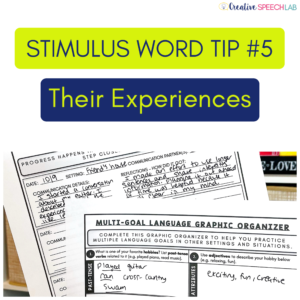
Where to begin?
Once I realized how challenging it might be to know exactly which word to use with your caseload, I decided to bundle all of the resources above and discount them by 20%! If you want all of the powerful, intentional, and thoughtful stimulus words that I’ve found so helpful, I hope that this bundle will be of help to you!
What do you think of these tips? Do you use intentional stimulus words? If you have any other suggestions, drop them below in comments!
Thanks for stopping by!
